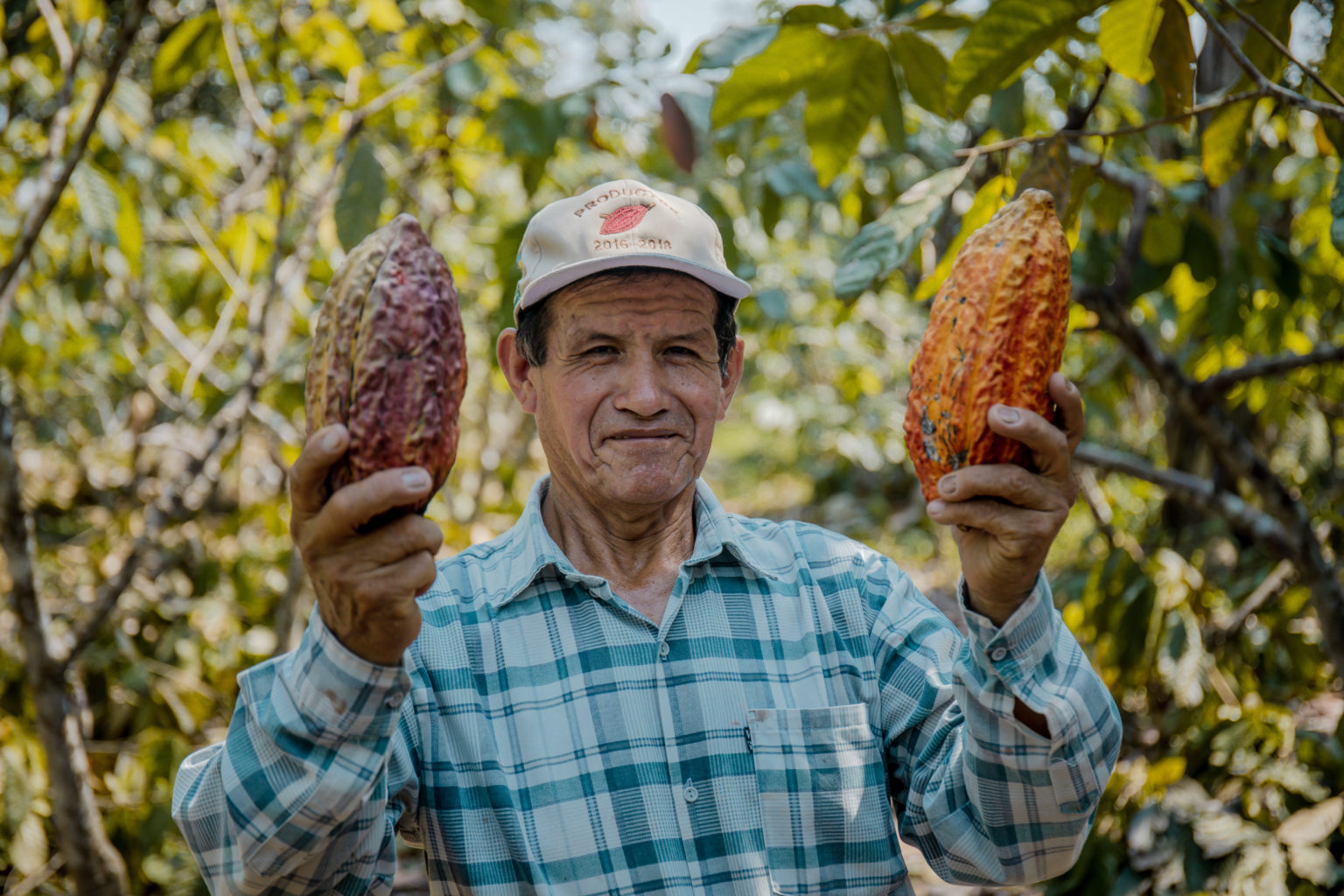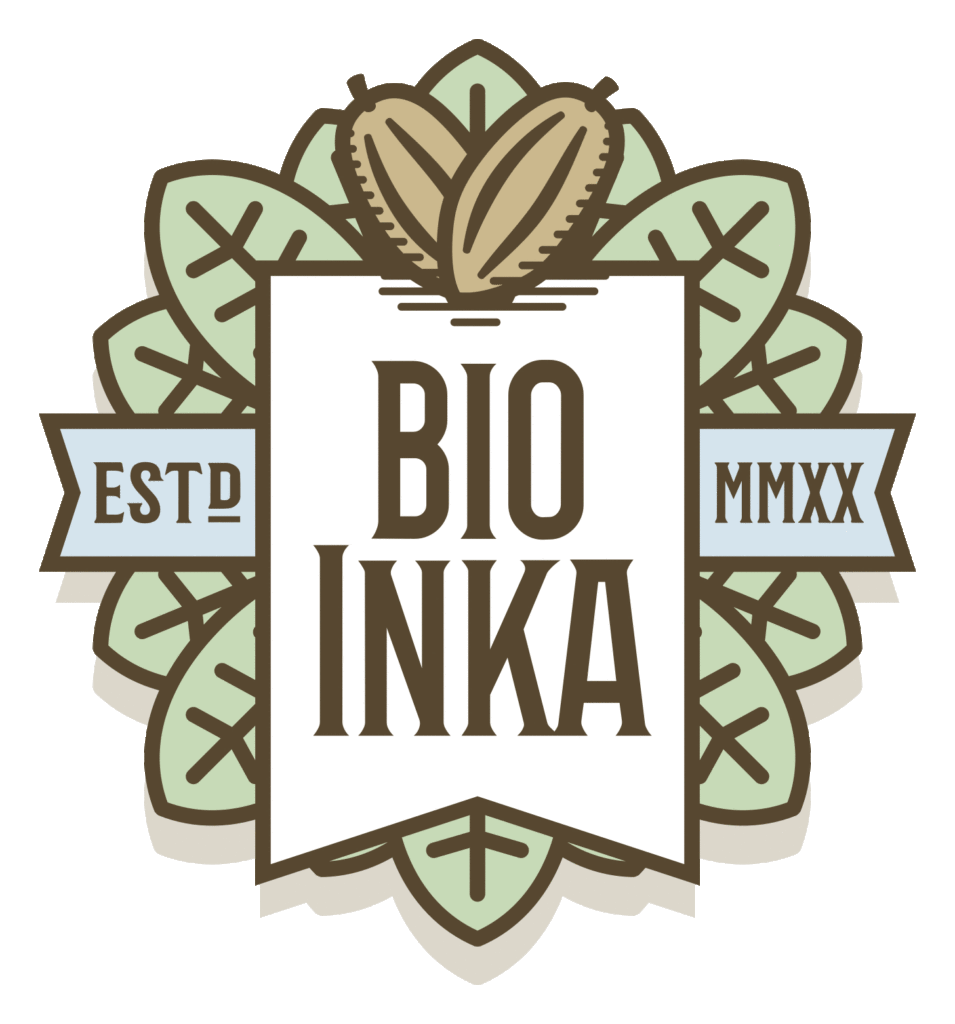Free shipping above 60 CHF !
Find us at Migros Balexert, Vibert, Porte de Nyon, and Kiss the Ground stores.
Free shipping above 60 CHF !

Do you know where your chocolate comes from? Do you wonder who produced the cacao in your chocolate and under what circumstances? Do you care if the chocolate you buy is sourced in a responsible way? We’d hazard a guess that if you’re reading this, you do care. So we’re shedding some light on why ethical and sustainable cacao is so important in the world of chocolate and what Bio Inka are doing about it.
You’ve almost certainly heard of Fair Trade chocolate. It’s a stamp of ethically produced chocolate, right? In many ways, yes. It means, in theory, that the farmers and workers who produced the cacao are paid a minimum price plus an additional Fairtrade Premium on top of the price of their crop.
You’ve almost certainly heard of Fair Trade chocolate. It’s a stamp of ethically produced chocolate, right? In many ways, yes. It means, in theory, that the farmers and workers who produced the cacao are paid a minimum price plus an additional Fairtrade Premium on top of the price of their crop.
Fair Trade came about as a response to extremely low trading prices of crops, which kept farmers living in poverty and resulted in forced and child labor to reduce costs. To combat these issues, the World Fair Trade Organization set fair trading prices for crops that allow farmers to have living wages to help improve standards of living and have more to invest in their communities. They also monitor and ban the use of forced and child labor.
Fair trade is a great place to start when it comes to ethical production and trading of cacao. However, there are some flaws to the system that, sadly, the farmers end up paying for. Notably, because there are many people and parts to the system, less profit ends up going to the farmers.
There is also the issue of quality control as standardized pricing for high and low quality crops means that farmers have no incentive to focus on growing the best quality crops.
In response to the issues with the well-meaning Fair Trade system, another way of trading cacao emerged: Direct Trade. This is the idea behind the bean to bar movement. All this means is that all intermediaries are cut out of the buying process between the farmer who makes the cacao and the company who makes the chocolate bar or cacao-based product.
This direct relationship between the farmer and the buyer is beneficial for both parties. For the farmers, it means they can negotiate better prices without having to give a portion away to an intermediary. There is also no need for them to pay the Fair Trade registration fee, meaning more money stays in their pockets. For the cacao buyers, the Direct Trade model means more control over quality as they can request exactly what they want from the farmers.
It’s important to note that Fair Trade and Direct Trade are not rivals, but evolving solutions to improve lives in cacao and coffee growing regions.
At Bio Inka, we use the Direct Trade model to buy our cacao nibs: there is no third-party involvement at all. By cutting out all intermediaries we want to create a pathway for cocoa farmers, their families and their communities to thrive.
Many of us know by now that conventional farming practices are harmful to the earth. Nasty chemicals used in non-organic farming are destroying the environment in worrying ways. Notably, it strips soil of its biodiversity, which normally plays a key role in combating climate change by helping to sequester carbon from our environment.
Where conventional farming practices contribute to damaging the environment, organic farming plays a supportive role. At Bio Inka, we opt for traditional organic farming practices. This involves using a natural fertilizer called guano that has been used for over 2000 years in Peru. Also, our cacao, which is of the high-quality Criollo variety, needs to grow in an organic plantation environment with other indigenous plants of the Peruvian Amazon. This is because it relies on a natural balance between cacao trees and other indigenous plants, which keep the soil rich and humid. As a result, our cacao nibs are rich in nutritional value and flavor while protecting a precious, diverse ecosystem. And we believe this is vitally important!
Would you like to be part of this movement? Try our ethically and sustainably-produced cacao nibs now!

